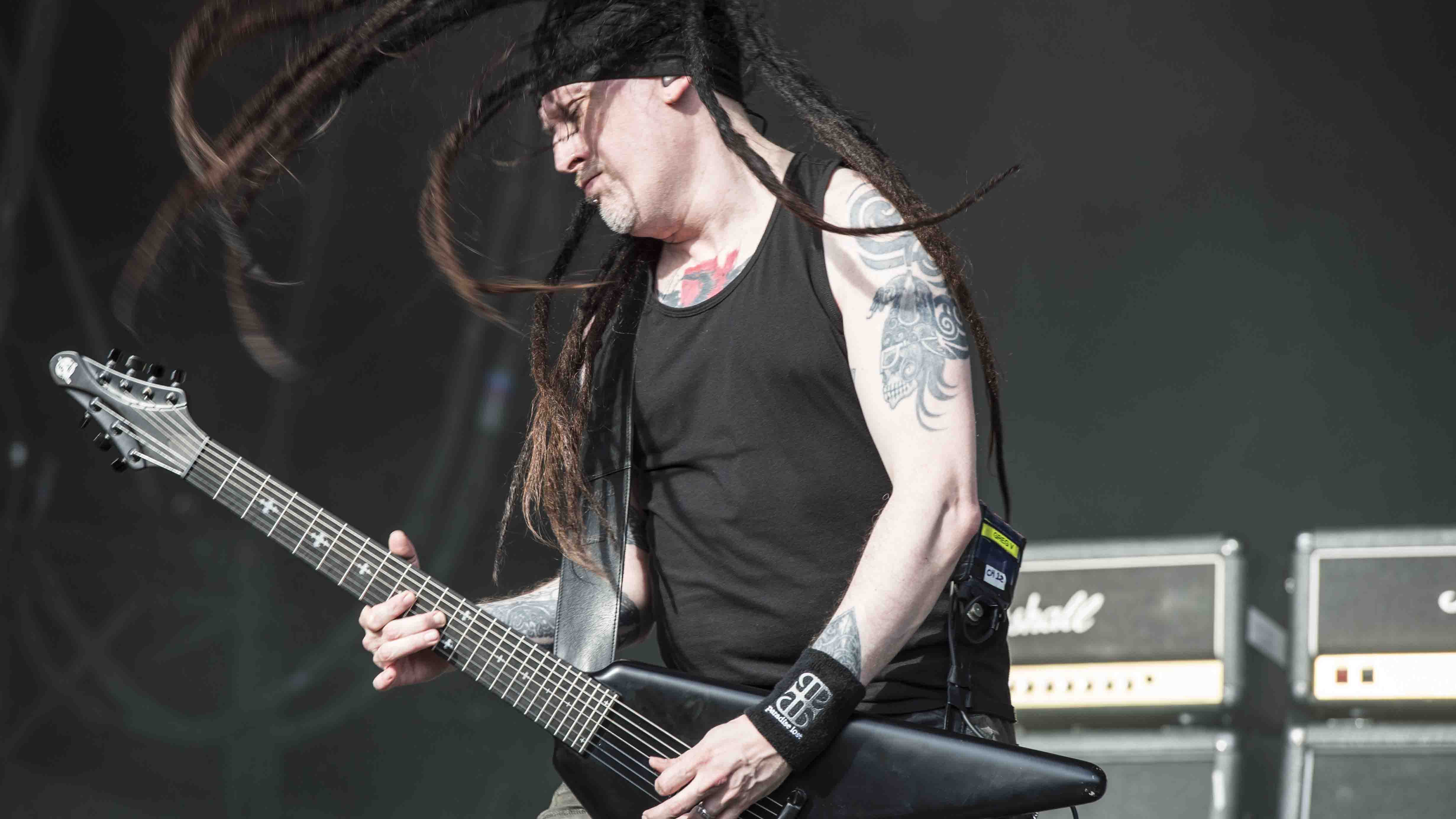
Introduction
We could forgive Gregor Mackintosh for feeling overwhelmed right now. He’s got a lot on his musical plate - past, present and future.
We’re here to talk about Fear Those Who Fear Him, the latest album with his extreme metal band Vallenfyre, but there’s plenty going on in the Paradise Lost part of his life, too: the 20th anniversary of the Halifax band’s landmark One Second album, and the release of new opus Medusa in September.
“It’s a very, very doomy record,” Greg confirms of Paradise Lost’s 15th studio effort.
I was doing a couple of days on Vallenfyre and a couple of days on Paradise Lost, going backwards and forwards… I wouldn’t want to try and do it again!
“And it was really because with the last record [2015’s The Plague Within], the final song we wrote for it was called Beneath Broken Earth. And it was the big doom metal song. But it just turned out way better than we expected and we just loved playing it live. It made us think, we should do a full album of this stuff. We haven’t done anything like this in so long. It was kind of refreshing to do, and it gives you room to breathe and try things out.”
As schedules unexpectedly collided between his two bands, Greg found himself writing for both Medusa and this new Vallenfyre record at the same time last year. A challenge he rose to, but not one he wants to repeat any time soon.
“I was doing a couple of days on Vallenfyre and a couple of days on Paradise Lost, going backwards and forwards. It was tough and stressful, but it gave me respite by switching between them. It was interesting in a way… but I wouldn’t want to try and do it again!”
To date, the only time Vallenfyre and Paradise Lost have shared a stage was last year’s Bloodstock festival, and Gregor was surprised to see a completely different turnout of fans for each set. Because although some of Vallenfyre’s songs nod to the death-doom of Paradise Lost’s pioneering beginnings, their sound is an altogether more viciously direct sonic experience. And it’s one that has allowed Greg the freedom to celebrate and explore his early metal influences in the '80s hardcore punk and extreme metal scenes.
“It connects me, not only to the music I grew up with, but to a scene that I haven’t really been part of for the best part of 25 years,” he explains.
“People who do it just for the love of doing it – promoters, venue owners, whoever… it’s just about the love of it, and that’s why we do it. I love doing Paradise Lost, but it is what I do for a living, so there are certain connotations to that - there’s a little more pressure. But with Vallenfyre, nobody tells us if and when to record an album, or a gig. It’s purely when we feel like doing it so it’s like my hobby.”
For the love of GodCity
As well as writing the bulk of Vallenfyre’s material, frontman Gregor plays lead on Fear Those Who Fear Him but is vocals only live; it’s bandmate Hamish Glencross (formerly of My Dying Bride) who takes on rhythm duties (Sam Wallace joins on guitar when the band tour).
With Vallenfyre recording this third album as a three-piece, completed by drummer Waltteri Väyrynen, Glencross took on bass duties for recording, too.
“He relished that far too much,” laughs Greg. “He was playing with his fingers. [Producer] Kurt Ballou said he hated it when bassists played with their fingers as there’s not enough attack for this kind of music, but Hamish basically smacked the hell out of the bass to make it work. And it wasn’t even his bass - it was Nate [Newton] from Converge’s.”
A lot of bands don’t have enough faith in their own material or their own vision. When you record with someone like Kurt Ballou, you get your guitar sound and then it’s, 'Are you happy with it? Because if you’re not, you can’t change it'
Those familiar with Ballou’s work will already know of the Converge connection - he’s the influential band’s guitarist and runs GodCity Studio in Salem, Massachusetts as an in-demand producer.
Last year saw Vallenfyre’s second wintertime visit to GodCity, and the city with its dark history of witchcraft trials, after tracking 2014’s second album Splinters with Ballou. “Some of it’s like Blackpool,” says Gregor of Salem’s tourist traps.
The studio itself provided the perfect environment for Vallenfyre’s manifesto.
“It reminds me of when I used to record back in the '80s,” he says of working with Kurt at GodCity.
“That’s something I’ve missed with all the tangle of cables everywhere. Patch bays with a million cables hanging out - I’d forgotten how much I missed that. And another thing I missed is committing to something. We used to call it ‘committing to tape’, even though the tape isn’t there any more.
“I think a lot of bands don’t have enough faith in their own material or their own vision. When you record with someone like Kurt Ballou, you get your guitar sound and then it’s, ‘Are you happy with it? Because if you’re not, you can’t change it.’ Once you’ve done the mix, the patch cables are pulled out. You can’t do another mix. There’s something refreshing about that, and albums are supposed to be a snapshot in time.”
Which brings us to the key metal moments of Gregor’s youth that have manifested in Vallenfyre’s sound - records that continue to inspire his music…
Vallenfyre's new album, Fear Those Who Fear Him, is out now via Century Media Records.
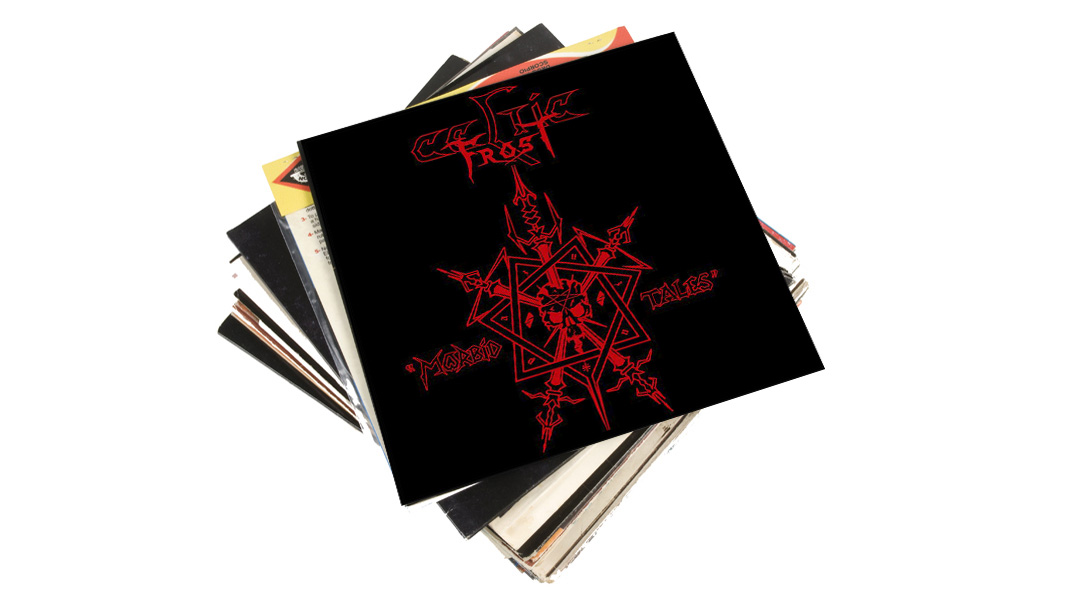
1. Celtic Frost - Morbid Tales (1984)
“I have to start here, because when I heard it I was still into punk. It was one of the instrumental records that made me listen to more metal.
I listened to that and it opened up a whole new world of metal to me
“The guitar tone is crazy. Even to this day you hear it and it’s like, ‘Wow!’ Just the simple, evil chord progressions, too. The song Procreation (Of The Wicked), I’d never heard anything like that - this doomy repetitive, bendy riff… it was crazy for me at the time, because all I was listening to was stuff like Discharge, Antisect and Conflict. Then I listened to that and it opened up a whole new world of metal to me.
“They were blending punk and metal in their music anyway, in a different way but like Motörhead were. Motörhead were the only band in the mid-'80s that punks and metallers listened to.
“It sounds stupid talking about it now, but they were very separate back then. They used to fight each other in parks; it wasn’t the lovely back-slapping punk and metal thing it is these days. So to have Celtic Frost and Motörhead around, they were the only bands that bridged that gap for a short time.”
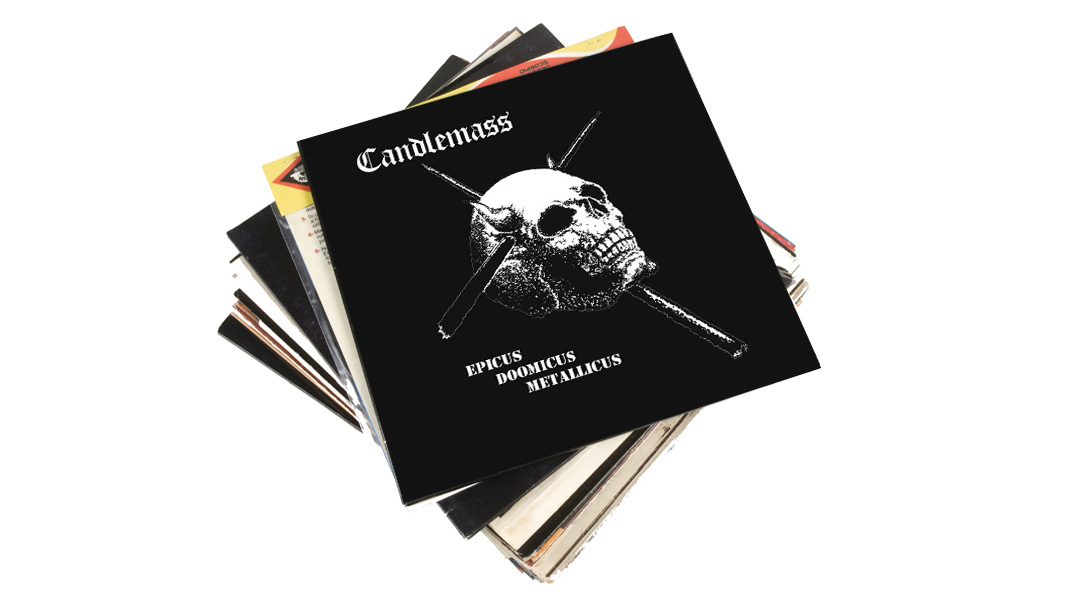
2. Candlemass - Epicus Doomicus Metallicus (1986)
“This was what led me into doom metal. Because I didn’t even know about Black Sabbath at the time. My parents weren’t particularly into rock, and I didn’t know any metal people. So Candlemass were a bit of an eye-opener for me.
“Retrospectively, then I got into Black Sabbath, after Epicus Doomicus Metallicus. The solos on that first Candlemass album and some of the riffing directly led to some of my playing style in Paradise Lost, some of the lead work I do. There’s a song called Crystal Ball on that record, and the solo on that is one of my favourites of all time.”
“Then I got massively into Sabbath and Trouble, who were also a big band for me…”
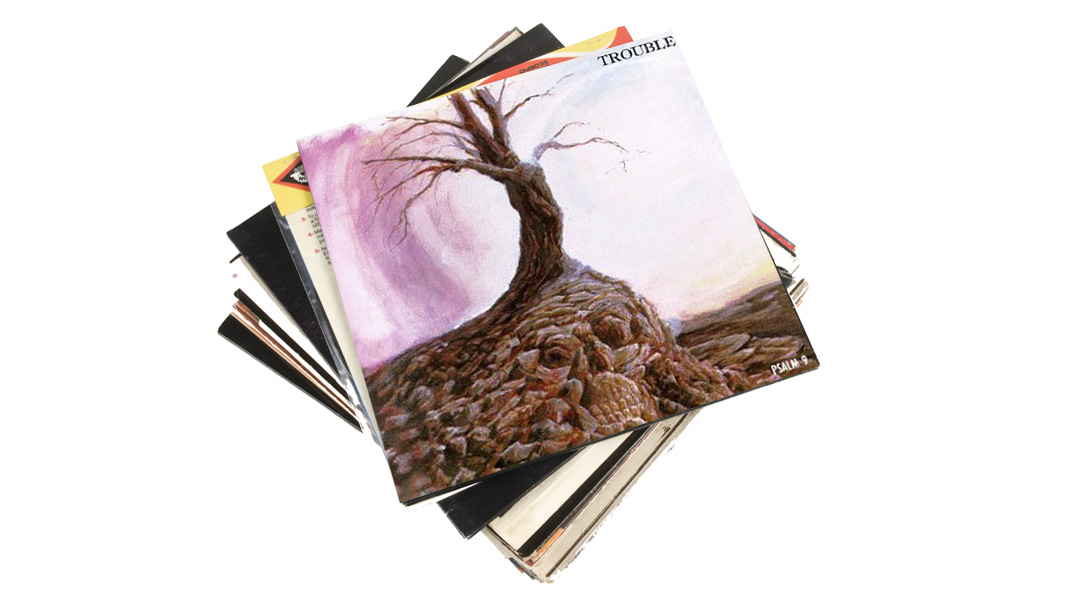
3. Trouble - Psalm 9 (1984)
“I listened to Trouble before Sabbath, too. Again, the guitar tone is just amazing. The harmonies as well - the duel guitar playing on it is great.
“The lead trade-offs, which I would never have seen myself being into when I was into punk stuff, I would have thought it was cheesy, but it’s done with such class as Trouble did with their early records. Another huge influence on my playing in Paradise Lost.”
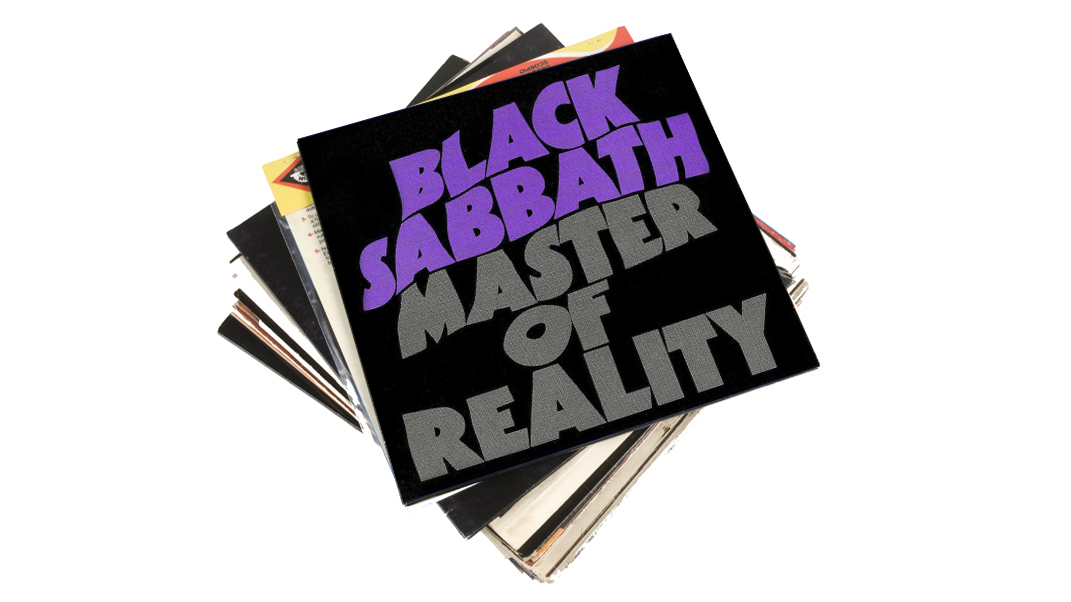
4. Black Sabbath - Master Of Reality (1971)
“So, the doom retrospective part of this lands at Black Sabbath now, and I have to choose the Master Of Reality album because it’s the most raw, with a sludgy guitar tone.
“It’s got some of the most evil, if not groovy, riffs - like Lord Of This World. And obviously, Iommi’s soloing and effortless way of playing. Then I went through everything from Black Sabbath and I love everything now. But Master Of Reality is really the one for me, because it sits right in that kind of sludgy, slow doom I was really getting into at the time.”
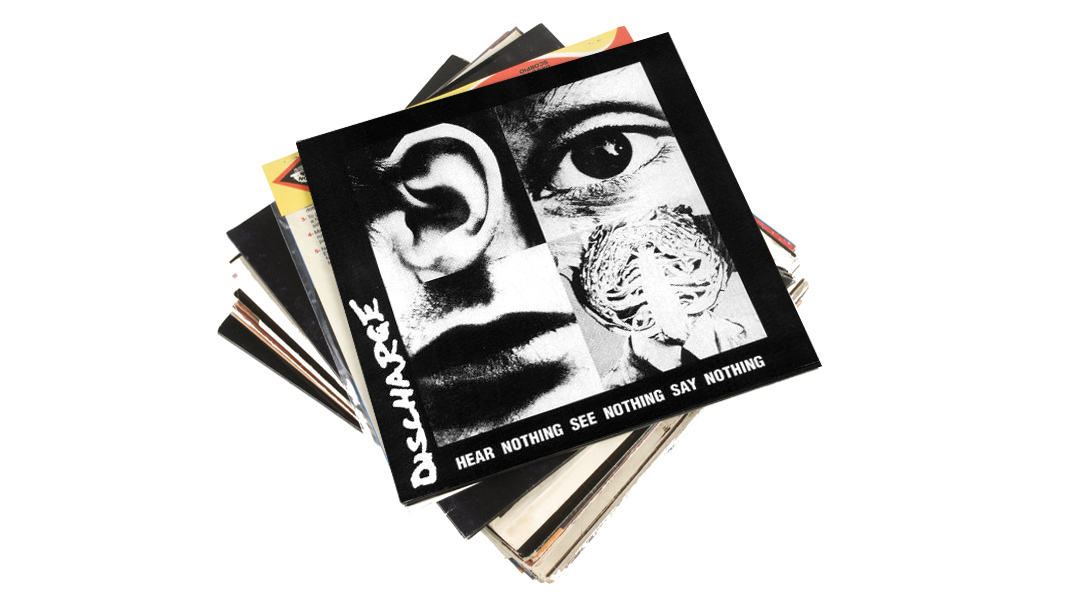
5. Discharge - Hear Nothing See Nothing Say Nothing (1982)
“I like some of the other early Discharge stuff possibly even more, but this album stands up better today. The production still stands up.
“Discharge were a band that taught me less is more - you don’t need to over-egg the omelette, if you know what I mean. And on that record they’ve got a really cool chorus rhythm guitar sound, and I’m not sure if it’s actually a chorus pedal or just phase-y double-tracked guitars. But there was a lot of that going on at the time; Antisect had a very similar thing and I definitely brought that into my guitar playing as well.
“Because I have, over the years, relied heavily on a lot of chorus-y sounds and I think that comes from that hardcore punk and then post-punk era that Killing Joke came out of. Then from there I got more into death metal…”
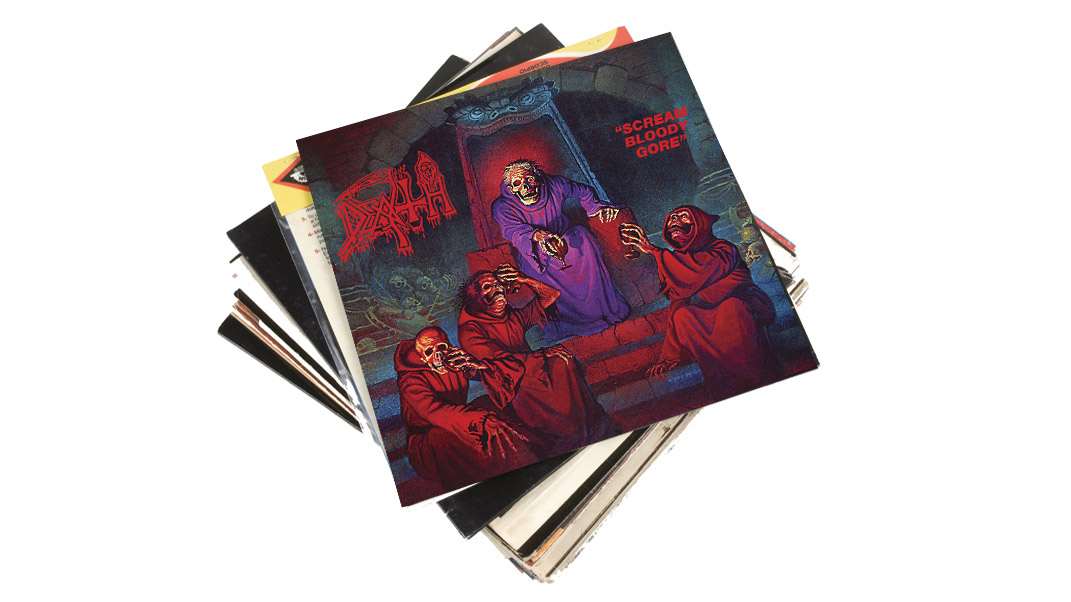
6. Death - Scream Bloody Gore (1987)
“I don’t particularly like the later Death albums when they went all proggy; it wasn’t for me. I’m not really into disjointed music - it unnerves me.
“I heard this album walking up the stairs into my local record shop and it was playing over the speakers. I thought, ‘What the hell is this?’ All the pick slides - you could hear the guitar being turned up, and the unique solos. You could always pick Chuck Schuldiner’s solos out from a crowd.
“It was technically adept but not so much that you felt you were hearing a King Diamond album or something. Just the right amount of technicality for death metal, because I’ve never been into the real guitar wanking stuff. It just grates on me; too much vibrato has always turned me off a bit.”
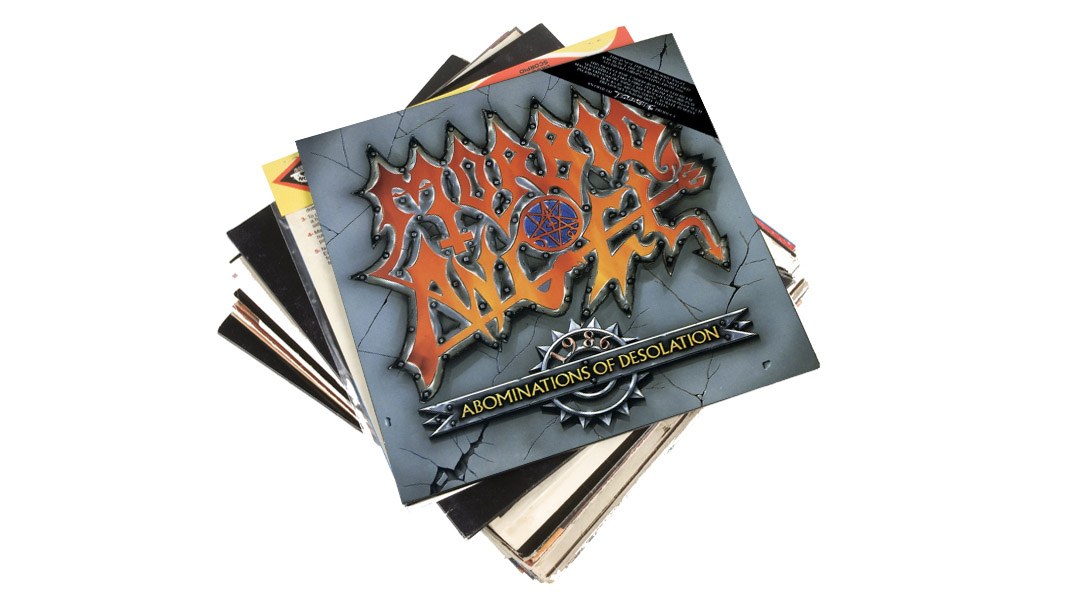
7. Morbid Angel - Abominations Of Desolation (1986)
“This is an odd album, because it’s one they never actually released [at the time], which they did before David Vincent joined and they signed to Earache. So it was the drummer singing - Mike Browning. But it’s all the same songs that are on their actual first release, [1989’s] Alters Of Madness, but without the blastbeats and with further over-the-top production and solos.
“I just love it because that’s the first thing I heard by Morbid Angel. It was a leaked tape of this album they’d recorded, back in the tape-trading days. That tape was probably one of the reasons Dig [Digby Pearson, Earache Records founder] signed Morbid Angel. Everyone was hearing this unreleased album, and then David [Vincent] was in Terrorizer, so the blastbeat thing was coming in. It was a couple of years before they did Alters Of Madness after that.
It was like Slayer on 10. Everything Slayer did but pushed a bit further
“So I’ve picked that album as it’s the first thing I heard, but really I could pick any of the first three Morbid Angel albums, just because of the unique riffing on them. There’s some crazy riffs that Trey Azagthoth came out with that have been emulated by various other bands. And his soloing on those first few records… it’s just so over the top, so many dives and whammy whatevers. Massively over the top, and I just liked that about it.
“It was like Slayer on 10. Everything Slayer did but pushed a bit further. Kind of like a caricature of Slayer, but in a good way. And that leads me to Slayer…”
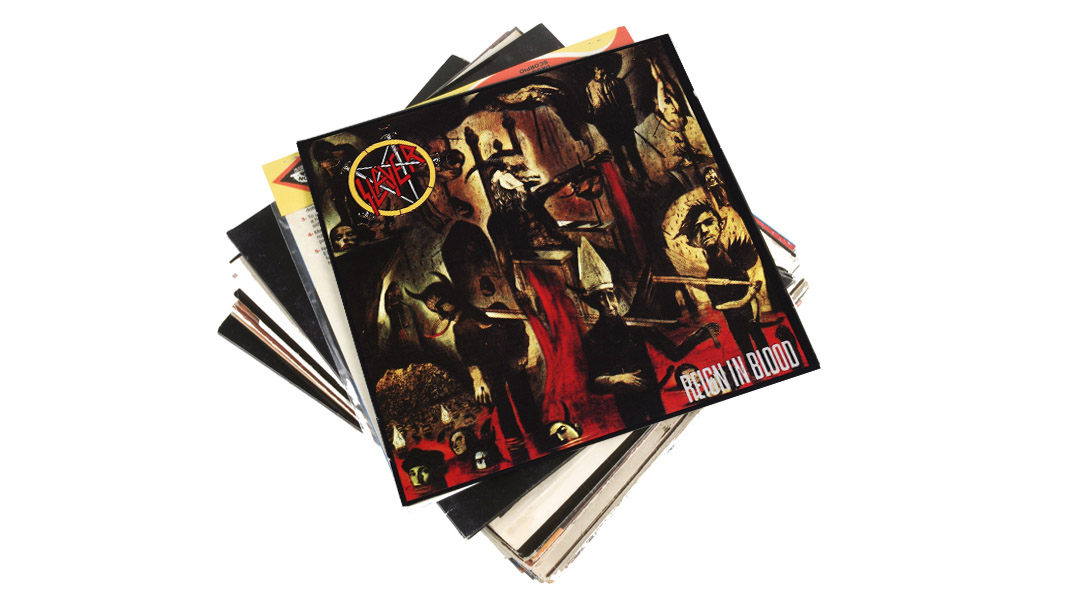
8. Slayer - Reign In Blood (1986)
“I had to include this. Amazing songs, super-tight riffing and never really been surpassed in its ferocity and delivery.
“It’s not a perfect production, it’s not perfect playing, but it’s just the right amount of everything it needs to be. It’s the sum of its parts, and if you changed one thing it wouldn’t be the same. It’s one of those albums where it is probably a perfect album for that kind of music.
“I’ve never really liked much after South Of Heaven, I must say. I thought God Hates Us All was pretty good. Reign In Blood is the high point for me. Nick [Holmes, Paradise Lost vocalist] and I saw them on the South Of Heaven tour. We got the train to Newcastle and slept rough just to see them.”
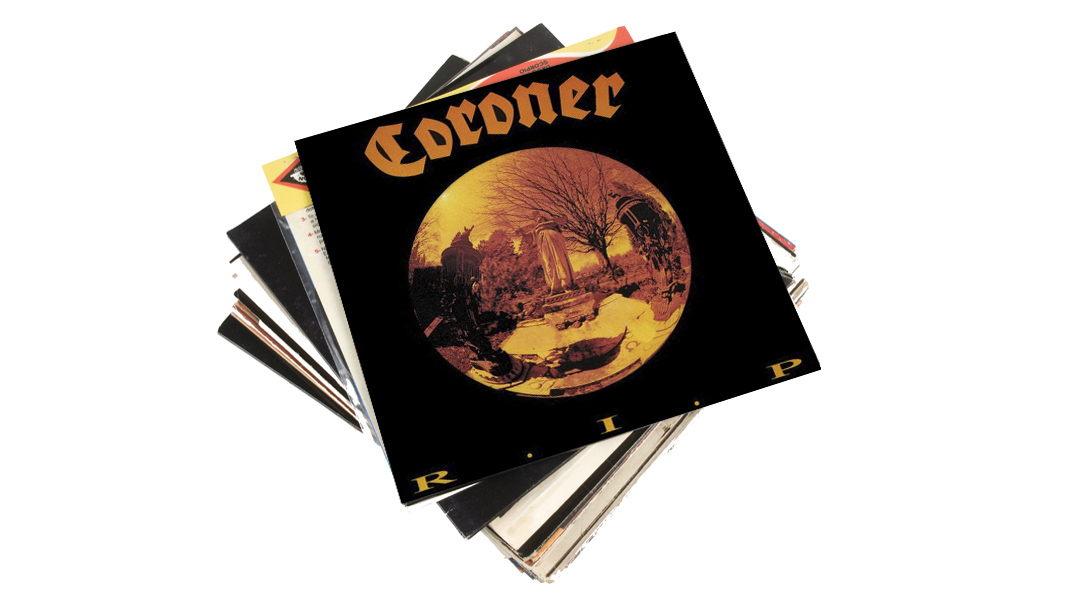
9. Coroner – R.I.P. (1987)
“This is the most technical band on the list. Again, I’d heard the demos and Tom G Warrior was singing on them. So when they did the first album it was like one of them trying to emulate Tom G’s voice, I guess. But the playing is just fantastic.
“I’ve always liked that kind of horse-riding drum beat, and it’s that for an entire album, basically. And the closest I’d heard to the kind of guitar playing on this was Macabre’s Grim Reality.
“This is a really solid record, but again, they went a bit too wanky for me after it. The first record is the pinnacle, I have to say.”
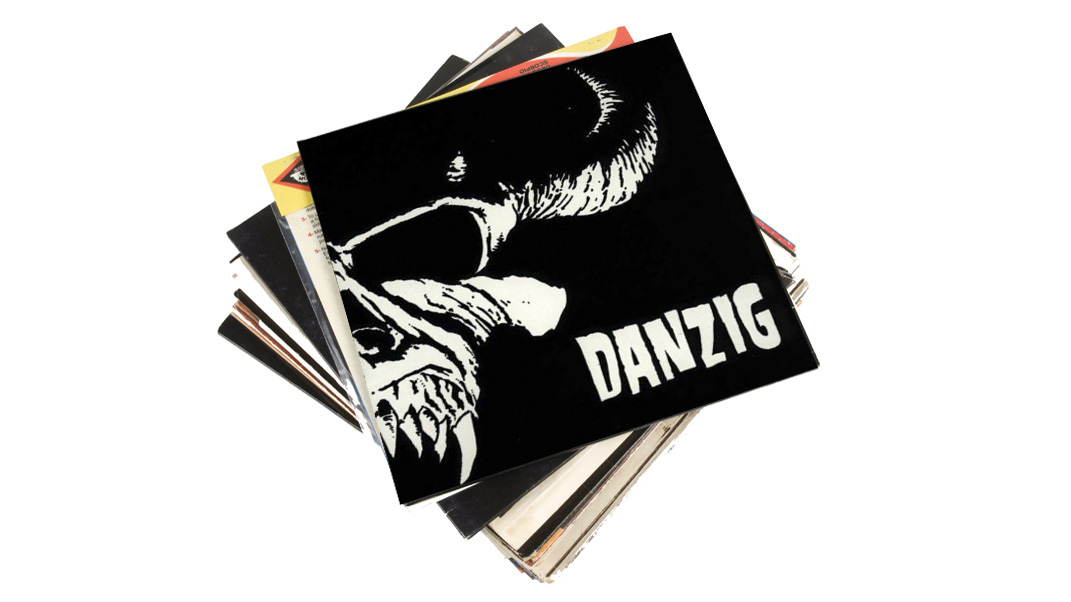
10. Danzig - Danzig (1988)
“I’ll end on something a bit more ‘musical’, with Danzig’s first album. A bit less noisy! It’s the simplicity of it: basic and stripped down and just really tasteful.
“It was kind of like this cross between blues, post punk and The Cult. All blended together to make this really unusual mix that hit at the right time. And with Rick Rubin doing it as well, it’s got this amazing dry-as-dust production that suits it down to the ground. You can hear every little finger movement on the frets, but it really helps the album along.
“John Christ’s playing on it is superb. Seamless riffing into soloing - no rhythms behind the leads or anything. Just very back-to-basics.”

Rob is the Reviews Editor for GuitarWorld.com and MusicRadar guitars, so spends most of his waking hours (and beyond) thinking about and trying the latest gear while making sure our reviews team is giving you thorough and honest tests of it. He's worked for guitar mags and sites as a writer and editor for nearly 20 years but still winces at the thought of restringing anything with a Floyd Rose.